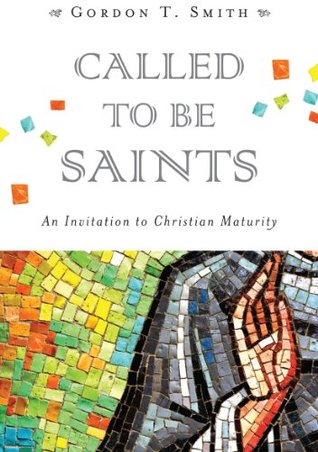More on this book
Kindle Notes & Highlights
Read between
July 4, 2020 - January 6, 2024
There is no wisdom without knowledge, but knowledge alone is not wisdom.
Wisdom is knowledge in practice, knowledge that is lived.
theology is formed within us only if it is practiced and that, therefore, practice is the essential counterpart to theological and spiritual formation.
It is through practice that virtue is cultivated.
It is not merely a good deed done or a ritual observed but the routine observance that marks Christian identity and fosters that identity.
If prayer matters, then you will pray.
It is in routine and
indeed ritual observance—in practice—that what we believe is
embodied and thu...
This highlight has been truncated due to consecutive passage length restrictions.
If wo...
This highlight has been truncated due to consecutive passage length restrictions.
practices are narcissistic with superfici...
This highlight has been truncated due to consecutive passage length restrictions.
melodies, they will cultivate such perspectives ...
This highlight has been truncated due to consecutive passage length restrictions.
This call to practice is not a new
suggestion; it is ancient—it is inherent in the medieval and
monastic understanding of prayer ...
This highlight has been truncated due to consecutive passage length restrictions.
for the individual there is no substitute for prayer, and for the learning community,
we do not study well until and unless we pray well.
an essential spiritual practice for the church today as well as for every student in a theological school—the capacity to read the Scriptures in prayer with attention to grammar and exegesis but with ultimate attention to the one who is revealed through the ancient text.
your job in the end is not to teach history or mathematics or music but to teach these disciplines as a means by which we seek the renewal of the mind, cultivate mature reasoning and thus moral intelligence, and equip men and women to provide moral and spiritual leadership for the church and the marketplace.
Formation in wisdom is the antithesis of indoctrination. Formation in wisdom fosters an open mind and an open Spirit, an eagerness to test theories, to press against borders, to see new ways of framing the truth. There will be diversity of opinion and space for ambiguity.
it is not that every course is a Bible course; it is rather that we are formed in wisdom as those for whom the Scriptures—the ancient text—are the very air that we breathe, the subtext of our critical reflections, the baseline from which we distill our learning and make sense of our world.
for each of the main courses I teach—Conversion and Transformation, the Meaning of the Sacraments, Spiritual Discernment—we begin with the church fathers.
Can we speak of formation and transformation in the critical university years for those who enroll at the public university? If the answer is yes, it seems to me that there are two indispensable agencies essential to the process of transformation. First is the student ministry and second is the local church.
social separation from parents can open up the possibility of real self-knowledge.
Every two years or so, I teach a graduate-level theology course titled Conversion and Transformation. One of the requirements for the course is a theological interpretation of a conversion narrative, and students typically use their own narrative as the basis for this theological analysis of religious experience.
the commitment of the Christian university and the seminary is spiritual maturity and character development in Christ.
our studies, our teaching-learning, will be fundamentally secular with nothing but a religious veneer without worship.
worship and prayer are the essential counterpoint to the work of the classroom and library.
With worship at the center, worship, study and learning are offered to God as a sacrifice of praise, and our affections are ordered according to the wisdom of God, that is, Christ Jesus himself.
Worship slows us down so that there is a measured pace to our studies, and this pacing humbles us, fostering teachableness but also discernment.
A vital means by which we teach is through example; we teach our students how to pray and how to worship and how to lead worship by our own participation and by the leadership we give to chapel.
“In the liturgy, love of learning and desire for God find perfect reconciliation.”


